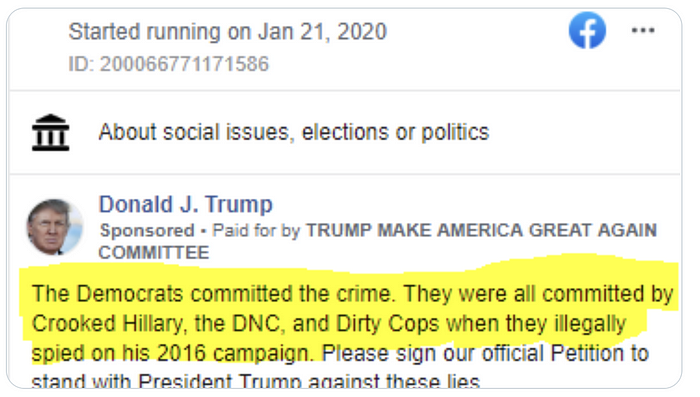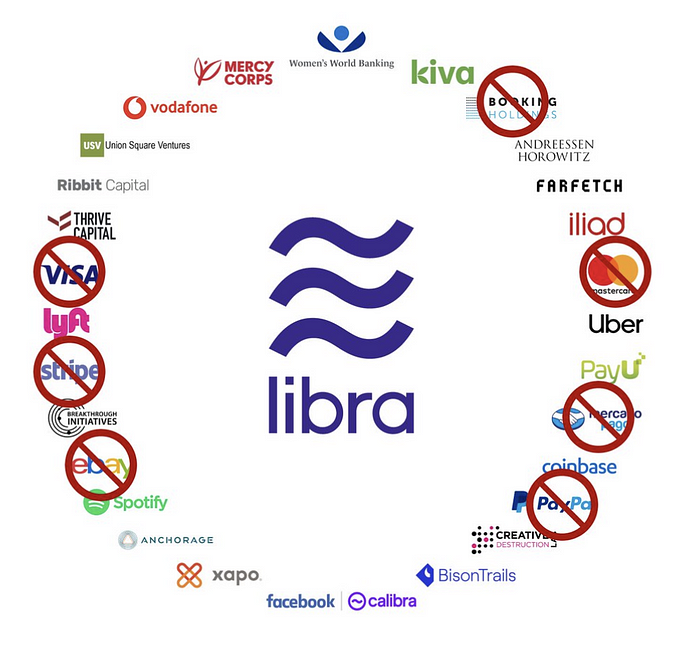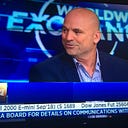
As Facebook Embraces Fake News, Shareholders Brace For Catastrophe
TL;DR Summary — I’ll cut to the chase. I believe in karma. And if I’m right, and karma’s a thing, than Mark Zuckerberg risks going down in infamy like other billionaires who built (bad) things that worked till they didn’t. The latest example, the Sackler family, who turned “opioid crisis” in to a household phrase. Once again proving that purposefully poisoning people with an addictive substance, can make you filthy rich. Until it doesn’t.
Following Facebook Closely Since 2004
I called Zuck in 2004, a month after Facebook launched, and offered to buy the company (I was running Bolt at the time). In March, 2010, I published the 1st Wall Street style research report on FB on Tumblr, with a $100 billion 5 year price target (it was trading at $16B). As FB continued to increase engagement, I continued to be a bull. I believe social networks are either growing engagement, or they’re dying. And for eight years, Facebook was growing user engagement. But Facebook’s Q4 ’17 earnings revealed the first decline in user engagement in Facebook’s history. Facebook gave the excuse that they were purposefully trying to prevent Facebook users from doing the #1 thing they liked to do on Facebook. They were trying to stop fake news. I didn’t care about the excuse. So after 8 years as a bull, during which the shares went up 30X+, I turned bearish, penning this blog post to note the occasion. Since that time, Facebook shares have underperformed:

Turns out, I’ve continued to be right on Facebook. In the last two years, Facebook shares are up just 6.1%, significantly underperforming both the NASDAQ, which gained 28.1% over that time, and its peer group (FAMGA), which averaged a gain of 64% over the past two years.
Faced With Falling Engagement, Facebook Embraced Fake News
It’s not known exactly when Facebook started clamping down on fake news, but they first mentioned it following it’s Q4 ’17 results. It’s not known when they began embracing faking news, but taking a look at the chart below, which tracks engagement (as defined as daily active users/monthly active users), my guess is Q2 ’19 was the first full quarter of the new policy, which drove an increase in engagement not seen for years.:

Facebook began telegraphing the new policy in September, and officially confirmed it a few weeks ago:


While Facebook claimed to be embracing free speech, what everyone believes, is that they’re embracing the mighty dollar. Because of the high click thru rates of fake news, it can be a very profitable business for all involved.
More than a hundred fake news sites were traced to Veles, Macedonia, a small city where entrepreneurs, some still in high school, discovered that posting fabrications to pro-Donald Trump Facebook groups unleashed geysers of traffic given the ability to “microtarget” ads at users who are most susceptible. It’s not just Russia.
Facebook Is Losing Friends And Making Enemies Of The Entire World
Part of Zuckerberg’s success has been predicated on not caring what people think. Moving fast and breaking things is a company mantra. But the days when that was an effective strategy are long gone, and the costs of not caring what any of their constituents think are getting significant, with a seemingly ever increasing potential to become catastrophic.
- USERS— Do Facebook users want to read fake news? Well we know they click on it. But American’s see fake news as a MAJOR problem.

Interestingly, Fox News has taught us that people are happy being lied to and listening to fake news, if it corroborates their views. So as people become more and more aware of the fact that Facebook is just an online National Enquirer, will they care? Will users care that per a study of 5,000 FB users over three years, published last year in the American Journal of Epidemiology, higher use of Facebook correlated with self-reported declines in physical health, mental health, and happiness.
Will users care about FBs disdain for them that was never more evident than in 2012, when Facebook used seven hundred thousand people as guinea pigs, feeding them happy or sad posts to test whether emotion is contagious on social media. (They concluded that it is.) When the findings were published, they caused an uproar among users, many of whom were horrified that their emotions may have been surreptitiously manipulated.
Things work until they don’t, and every day the Facebook cesspool fills people’s news feeds with lies, everyday that Facebook usage negatively impacts their users health, there is a growing risk of something horrific happening, that users simply won’t stand for. It happened to cigarettes, it happened to opioids.
2. Advertisers — Another lesson that Fox News has taught us is that some advertisers don’t want to be around fake news, particularly if its hate filled. Advertiser boycotts caused the # of ads on Tucker Carlson Tonight to plummet almost 60% following his statement that “white nationalism” is a hoax.

It’s a matter of time before groups start boycotting Facebook advertisers. Do Fortune 500 companies want their ads placed next to drivel like:

Probably more importantly, will liberal groups put enough pressure on Facebook advertisers that there starts to be an impact like at Fox News.
Will advertisers care about FB’s disdain for them that was never more evident than in 2016 when they were sued by advertisers over fraudulent user metrics that inflated time spent by users watching videos by up to 900%. They paid a $40 million fine in 2019 for that piece of chicanery.
Again, things work until they don’t. And every day that Facebook shows disdain for advertisers, everyday that advertisements are next to garbage, there is a growing risk of something horrific happening, that advertisers simply won’t stand for.
3. Regulators — The regulators hate Facebook for so many reasons. The FCC fined Facebook $5 billion in July, as part of an investigation sparked by the Cambridge Analytica scandal in 2018. The FTC found that Facebook was responsible for a range of privacy missteps violating it’s 2012 FTC consent decree. The $5 billion fine was more 200 times larger than the 2nd-largest fine ever imposed by the FTC, yet many argued it left off a zero. Facebook shares went up 1% the day the fine was announced.
Democratic presidential candidate Joe Biden wrote a letter to Facebook after President Donald Trump ran a series of ads on the platform accusing Biden of bribing Ukrainian officials, a claim that had been debunked. Senator Elizabeth Warren, another Democratic candidate for president, was also upset about Facebook’s policy, and tried to prove a point when she took out a series of ads earlier this month claiming Zuckerberg had endorsed Trump for re-election. That wasn’t true.
Regulators in Britain, France, Germany, Canada, Ireland and many other countries are scrutinizing Facebook’s practices. Governments in Australia, India, New Zealand and Singapore have passed or are considering new laws to better control social media.
Business partners of Facebook have found the regulatory heat surrounding Facebook too much to take, as witnessed by the eight partners who have dropped out of Libra (Vodafone left last week):

Again, things work until they don’t. Regulators now realize that a $5 billion fine had no impact. Every day that Facebook shows disdain for the ecosystem, there is a growing risk of something horrific happening, that regulators simply won’t stand for. Would a $50B fine have an impact on Facebook’s behavior? It would certainly have an impact on its shares.
4. Employees — Who wants to work for a fake news factory? In October the NYT wrote “Facebook Staff Opposes Policy Allowing Lies in Political Ads”. In addition, the underperforming shares are making Facebook an even less attractive to potential employees.
5. Co-Founders, Investors, Celebrities (aka the rest of the ecosystem) — In November, 2017, Sean Parker, Facebook’s first president, called himself a “conscientious objector” to social media, saying,
“God only knows what it’s doing to our children’s brains.”
A few days later, Chamath Palihapitiya, the former vice-president of user growth, who worked at FB from 2007 to 2011, told an audience at Stanford:
“The short-term, dopamine-driven feedback loops that we have created are destroying how society works — no civil discourse, no coöperation, misinformation, mistruth. I feel tremendous guilt. I think we all knew in the back of our minds.”
Roger McNamee, who advised Facebook founder Mark Zuckerberg in the early years of the company, now argues that Facebook is a threat to democracy, to public health, and to users’ privacy.
Elon Musk deleted his Facebook pages and those of Tesla and SpaceX. Tim Cook, the C.E.O. of Apple, told an interviewer, “We could make a ton of money if we monetized our customer,” but “we’ve elected not to do that.”
So Facebook has proven that you can build a massive company even if you show complete disdain for your users, and your customers, and your employees, and everyone else in your ecosystem. But the risks of a catastrophic incident are mounting by the day. So investors beware. I know Facebook has made lots of people filthy rich. But going forward, you’re not only foolishly risking your capital, but when the catastrophic event happens, you’ll also feel stupid…. and just plain filthy.
If you think the world would benefit from more people reading this post, please “Clap” below (up to 50 times). Thx!
